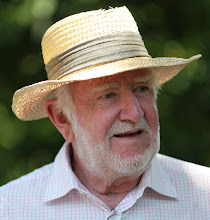On Friday last week, Government finally tabled the nuclear agreements it had reached with Russia, China, France and Canada. After all the ranting about how we were being committed to a trillion rand without knowing who was offering what, the agreements were a decidedly damp squib. They laid out the principles for co-operation on matters nuclear, and made no commitments whatsoever.
That does not prevent the nuclear critics from banging on, particularly about the cost. The official estimate in 2010 was R400 million; an NGO quickly inflated that to a possible trillion. One of the most vociferous of the nuclear critics, Prof Steve
Thomas of the University of Greenwich, has recently paid us a visit and stressed his estimate of the possible costs of our programme. One would have thought he would
have had enough to do about Britain’s energy policy without telling us what to
do with our own.
The simple
fact of the matter is that it barely matters what the capital cost of our
future nuclear plant will be. What matters is the cost at which it will
produce power. That is the lesson from our very successful renewable
energy programme. The capital committed to that programme now amounts to about
R190 billion, approaching half the expected lower cost of the nuclear
programme. Yet it is producing affordable power, at a price which is
funding the capital expenditure.
The
Department of Energy has cut its commercial teeth with the renewables. It
now seeks to use those teeth on nuclear procurement. Can the University of
Greenwich really teach us anything? Britain’s renewable programme has been
sustained by huge subsidies, which the new Conservative government has decided
to cut. Its nuclear build programme is ‘interesting’ – it has purchased
two reactors to a design that is proving very difficult to build and which is
not yet in service, at a very high capital cost. It is currently relying on
importing power from Europe and Ireland to balance its grid. Perhaps Prof
Thomas’ skills are needed at home.
What few of the nuclear critics will recognise is that our nuclear programme is part of the IRP2010 proposals. These were extensively discussed by everyone who had any interest in our energy future, and finally agreed by Cabinet in March 2012. So the programme is nothing more than was agreed after a very wide-ranging consultation. It is not something dreamt up to enrich a few politicians - although the risks of that happening are very real.
What few of the nuclear critics will recognise is that our nuclear programme is part of the IRP2010 proposals. These were extensively discussed by everyone who had any interest in our energy future, and finally agreed by Cabinet in March 2012. So the programme is nothing more than was agreed after a very wide-ranging consultation. It is not something dreamt up to enrich a few politicians - although the risks of that happening are very real.

